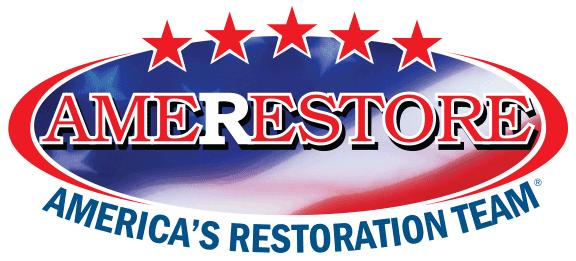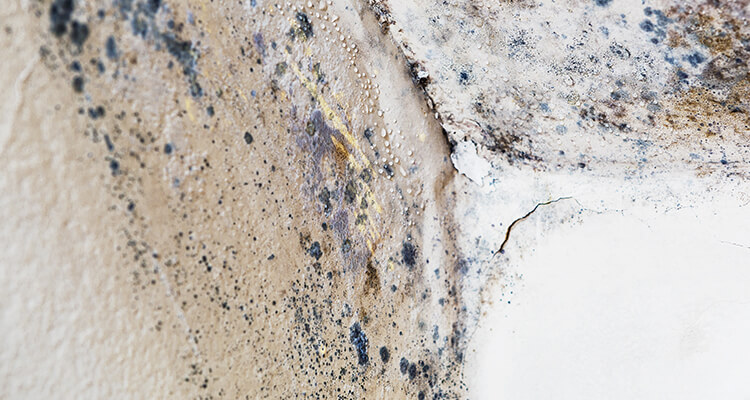There are thousands of mold varieties naturally occurring on our planet but once someone realizes “I have mold in my house,” they freak out. Why? In this blog, we’ll cover some frequently asked questions relating to where mold comes from, why it’s a problem and what to do about it. Stay safe and read more in case you discover mold in your home or business.
Frequently Asked Questions about Mold in my House or Business
How Can I Keep Mold from Growing in my Home?
As mold remediation experts, we frequently hear questions like this. Mold has been on Earth before us and will exist long after we’re gone. It can grow anywhere and everywhere. In humid, dark environments or dry and cold, the key is to keep it out of our living areas.
What is the Easiest Way to Keep Mold from Growing?
Control the moisture. So much depends on the climate and your specific home or property. Mold forms when a commercial property or house experiences water or flood damage, Mold also forms around high humidity due to an inefficient or oversized HVAC system. Sometimes the AC is turned off, moisture runs rampant and mold forms. Trigger events include:
- Heavy rains
- Leaky pipe or garbage disposal
- Broken ice maker line
- Supply line break
- Water heater leak
- Roof leak
- Toilet overflow
- Tub overflow
- Washer hose break
- Toilet supply line break
- Natural disasters
- HVAC system not working properly
Mold can grow anywhere. An office manager once discovered the industrial coffee maker leaked water into a cabinet below. No one knows how long it had been leaking but when it was discovered, mold had already started to grow.
Why is it Important to Address Water Damage and Mold in my House or Business Quickly?
Not addressing water damage quickly gives mold the head start it needs to begin its growth. Given the right conditions, mold growth starts in as little as 72 hours. Once the dryout process has started, it greatly reduces the conditions for mold growth. Tip: When water damage happens, start the dryout process quickly.
What’s the Difference Between Mold Removal and Mold Remediation?
The short answer is, very little. Some people use the term “remediation” to mean “cleaning.” Some use the terms remediation and removal interchangeably. It’s important to have a mold expert because there are a lot of misperceptions, even among providers.
Mold “remediation” from one group simply means they cleaned the area and now you can’t see the mold anymore. In some cases, like non-porous surfaces, mold can be cleaned away.
The majority of water damage strikes porous surfaces and soaks through drywall. If someone cleans the inside, how do you know what’s happening on the inside where you can’t see?
President of Amerestore Mike Adams knows. In business for more than 30 years, Adams established one of the first restoration companies in the country to remove mold from building materials properly. He’s also spent several years traveling the U.S., Canada and Australia teaching proper techniques for mold removal.
Adams also contributed to the first mold remediation standard published by the I.I.C.R.C., a certification agency for restoration professionals.
Mold may be cleaned, but it’s crucial to get the root of the mold spore. This may mean removal of the building materials in order to fully complete the task. Painting over mold does not mean it’s gone.
Will Mold in my House Make Me Sick?
Maybe. Some people are more sensitive than others. They might experience congestive cold symptoms or a rash. For those allergic to particular mold spores, they’re vulnerable to more severe reactions.
There are thousands of mold varieties so, it’s hard to broadly define. Scientists have determined, however, continued exposure, especially for children, often leads to respiratory illnesses, such as asthma.
Is Black Mold the Only Mold in my House to Worry About?
This is a question we hear a lot. The truth is, black mold, or Stachybotrys, is the mold with all the bad press. It is the most toxic mold known to man at this time but you may not be allergic to Stachybotrys but another type of mold. Because mold affects people differently, there are no official federal regulations on “safe mold levels” or ones to avoid.
Some black molds are toxic and if another mold makes you sick, it’s toxic too, no matter what kind, color or shape. It should be remediated.
Call Mold Removal Pros Amerestore When There’s Mold in your House or Business
In conclusion, call mold remediation and removal experts Amerestore if you have mold in your home or commercial property. We’ve served people in their time of need for more than 30 years. We’ll be there for you with a quick and discreet response. As mold removal experts, trust us with your mold removal.
We take our work seriously and give every job 100 percent, whether a home or business. When you have restoration needs because of flood or water damage, smoke and fire damage, storm or hurricane damage or mold, call Amerestore, America’s Restoration Team. We’re available 24/7 and travel as needed.

